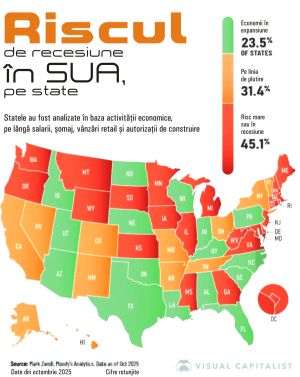The eurozone economy made an unexpected advance in August as the boost from the Paris Olympics boosted the private sector to its best performance in three months. According to data published by Bloomberg, the Purchasing Managers' Index (PMI) calculated by S&P Global rose to 51.2 points in August from 50.2 points in July, surpassing even the most optimistic forecasts of analysts. The most significant contribution to this advance came from the services sector, which reached its highest level of activity since April. However, the manufacturing sector continued to contract, aggravated by the slowdown in economic activity in Germany, Europe's largest economy. Analysts warn that the positive momentum generated by the Olympics is temporary in nature and will not have a lasting effect, not even on the French economy. They point out that once the effects of this sporting event wear off, the impact of the lingering problems in the manufacturing sector on the entire Eurozone economy will be felt more acutely. The German economy, Europe's economic engine, contracted more than expected, raising questions about the ability of the European economy to maintain growth. Analysts polled by Bloomberg forecast limited economic expansion for Germany in 2024, adding to economic uncertainties in the region. "With the temporary boost given by the Olympic Games in France fading, and signs of declining confidence in the Eurozone services sector, it is most likely only a matter of time before the problems in the manufacturing sector begin to affect services as well ", appreciated Cyrus de la Rubia, chief economist at Hamburg Commercial Bank.
Persistent weakness in the European economy has intensified calls for the European Central Bank (ECB) to cut its key interest rate again at its September meeting, after it was already cut once in June. Olli Rehn, a member of the ECB's board of governors, recently pointed out that increased risks to economic growth could justify a further rate cut, provided the disinflation process continues.
Although the Paris Olympics provided a welcome boost to the eurozone economy, the long-term outlook remains uncertain. As the temporary effects of this event fade, lingering economic challenges, particularly in the manufacturing sector, could significantly affect the region's economic future. The European Central Bank is now facing increasing pressure to take further steps to support the economy amid a general economic slowdown.




























































